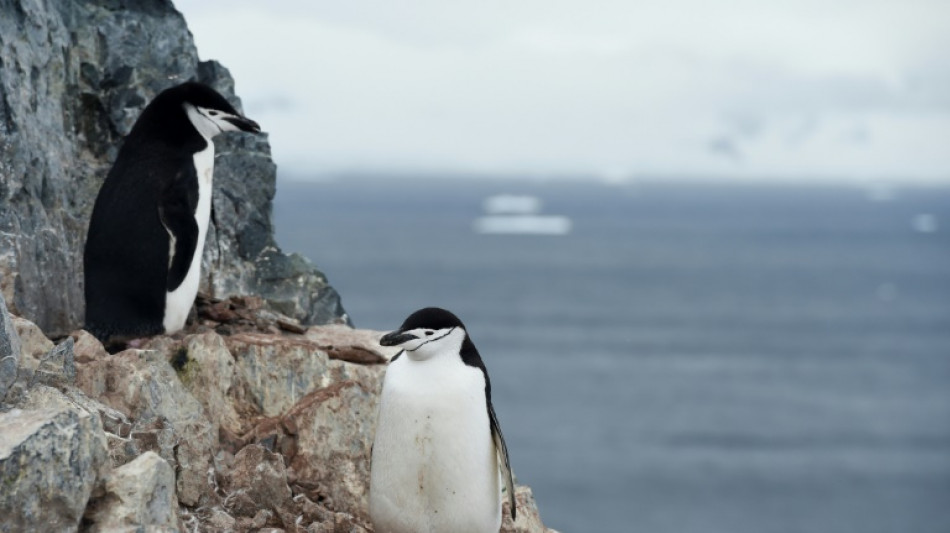
-
 England 'flat' as Crawley admits Australia a better side
England 'flat' as Crawley admits Australia a better side
-
Australia four wickets from Ashes glory as England cling on

-
 Beetles block mining of Europe's biggest rare earths deposit
Beetles block mining of Europe's biggest rare earths deposit
-
French culture boss accused of mass drinks spiking to humiliate women

-
 Burning effigy, bamboo crafts at once-a-decade Hong Kong festival
Burning effigy, bamboo crafts at once-a-decade Hong Kong festival
-
Joshua knocks out Paul to win Netflix boxing bout

-
 Dogged Hodge ton sees West Indies save follow-on against New Zealand
Dogged Hodge ton sees West Indies save follow-on against New Zealand
-
England dig in as they chase a record 435 to keep Ashes alive
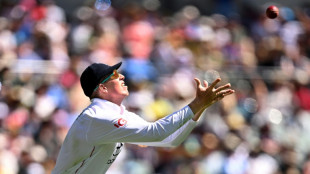
-
 Wembanyama 26-point bench cameo takes Spurs to Hawks win
Wembanyama 26-point bench cameo takes Spurs to Hawks win
-
Hodge edges towards century as West Indies 310-4, trail by 265

-
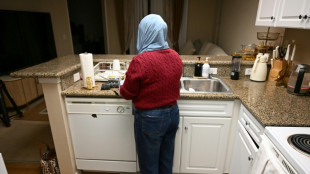 US Afghans in limbo after Washington soldier attack
US Afghans in limbo after Washington soldier attack
-
England lose Duckett in chase of record 435 to keep Ashes alive
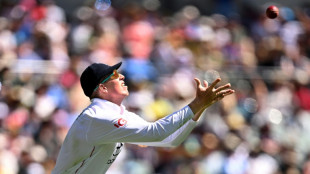
-
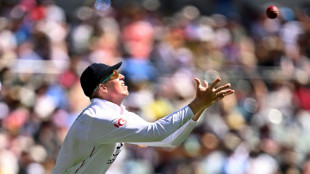 Australia all out for 349, set England 435 to win 3rd Ashes Test
Australia all out for 349, set England 435 to win 3rd Ashes Test
-
US strikes over 70 IS targets in Syria after attack on troops

-
 Australian lifeguards fall silent for Bondi Beach victims
Australian lifeguards fall silent for Bondi Beach victims
-
Trump's name added to Kennedy Center facade, a day after change

-
 West Indies 206-2, trail by 369, after Duffy's double strike
West Indies 206-2, trail by 369, after Duffy's double strike
-
US strikes Islamic State group in Syria after deadly attack on troops

-
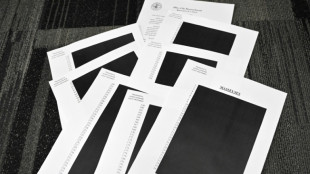 Epstein files opened: famous faces, many blacked-out pages
Epstein files opened: famous faces, many blacked-out pages
-
Ravens face 'special' Patriots clash as playoffs come into focus
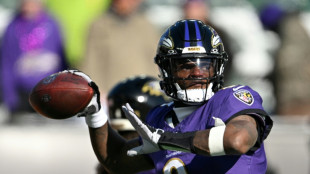
-
 Newly released Epstein files: what we know
Newly released Epstein files: what we know
-
Musk wins US court appeal of $56 bn Tesla pay package

-
 US judge voids murder conviction in Jam Master Jay killing
US judge voids murder conviction in Jam Master Jay killing
-
Trump doesn't rule out war with Venezuela

-
 Haller, Aouar out of AFCON, Zambia coach drama
Haller, Aouar out of AFCON, Zambia coach drama
-
Nasdaq rallies again while yen falls despite BOJ rate hike

-
 Bologna win shoot-out with Inter to reach Italian Super Cup final
Bologna win shoot-out with Inter to reach Italian Super Cup final
-
Brandt and Beier send Dortmund second in Bundesliga

-
 Trump administration begins release of Epstein files
Trump administration begins release of Epstein files
-
UN Security Council votes to extend DR Congo mission by one year

-
 Family of Angels pitcher, club settle case over 2019 death
Family of Angels pitcher, club settle case over 2019 death
-
US university killer's mystery motive sought after suicide

-
 Rubio says won't force deal on Ukraine as Europeans join Miami talks
Rubio says won't force deal on Ukraine as Europeans join Miami talks
-
Burkinabe teen behind viral French 'coup' video has no regrets

-
 Brazil court rejects new Bolsonaro appeal against coup conviction
Brazil court rejects new Bolsonaro appeal against coup conviction
-
Three-time Grand Slam winner Wawrinka to retire in 2026

-
 Man Utd can fight for Premier League title in next few years: Amorim
Man Utd can fight for Premier League title in next few years: Amorim
-
Pandya blitz powers India to T20 series win over South Africa

-
 Misinformation complicated Brown University shooting probe: police
Misinformation complicated Brown University shooting probe: police
-
IMF approves $206 mn aid to Sri Lanka after Cyclone Ditwah

-
 Stocks advance as markets cheer weak inflation
Stocks advance as markets cheer weak inflation
-
Emery says rising expectations driving red-hot Villa

-
 Three killed in Taipei metro attacks, suspect dead
Three killed in Taipei metro attacks, suspect dead
-
Seven Colombian soldiers killed in guerrilla attack: army

-
 Amorim takes aim at Man Utd youth stars over 'entitlement'
Amorim takes aim at Man Utd youth stars over 'entitlement'
-
Mercosur meets in Brazil, EU eyes January 12 trade deal

-
 US Fed official says no urgency to cut rates, flags distorted data
US Fed official says no urgency to cut rates, flags distorted data
-
Rome to charge visitors for access to Trevi Fountain

-
 Spurs 'not a quick fix' for under-fire Frank
Spurs 'not a quick fix' for under-fire Frank
-
Poland president accuses Ukraine of not appreciating war support


Penguins snatch 11 hours of sleep through seconds-long micronaps
In humans, nodding off for a few seconds is a clear sign of insufficient sleep -- and can be dangerous in some situations, such as when driving a car.
But a new study published on Thursday finds chinstrap penguins snooze thousands of times per day, accumulating their daily sleep requirement of more than 11 hours in short bursts averaging just four seconds.
The flightless birds might have evolved this trait because of their need to remain constantly vigilant, according to the authors of the paper in Science.
The researchers argued that the findings show, contrary to prior assumptions, the benefits of sleep can accrue incrementally, at least in some species.
Chinstrap penguins (Pygoscelis antarcticus), named for the thin black band of plumage that extends from ear to ear, may be the most abundant species of penguin. Their current population is estimated at nearly eight million breeding pairs that are found mainly on the Antarctic Peninsula and South Atlantic Ocean islands.
When nesting, single parent penguins have to keep watch over their egg, guarding them from predatory birds called skuas while their partners are away on foraging trips that last several days.
They also have to defend their nests from other penguins that might try to steal nest material. Once a penguin partner finally returns, the couple switch roles.
A team led by Paul-Antoine Libourel of Lyon Neuroscience Research Centre implanted electrodes on 14 birds at a colony on King George Island in December 2019. They recorded electrical activity in the brain and neck muscles, and they used accelerometers and GPS to study body movement and location.
Combined with video recordings and direct observation over multiple days, they were able to identify numerous peculiarities.
The penguins' sleep occurred while standing or while lying to incubate their eggs, with the average bout lasting 3.91 seconds. In total they slept more than 10,000 times a day.
Penguins on the periphery got longer and deeper bouts of sleep than those in the center -- which can be explained by the excess noise and physical bumping that occurs in the middle of a colony, or the heightened risk of nest material theft.
Although the scientists did not directly measure whether the birds were gaining the restorative benefits of sleep, the fact the penguins were successful at breeding led them to believe this was indeed the case, with the moments of neuronal silence providing windows for rest and recovery.
In humans, however, conditions that fragment sleep such as sleep apnea have impacts on cognitive function and might even precipitate neurodegenerative disease, such as Alzheimer's.
"Thus, what is abnormal in humans could be perfectly normal in birds or other animals, at least under certain conditions," wrote scientists Christian Harding and Vladyslav Vyazovskiy in a related commentary piece.
T.Ward--AMWN


